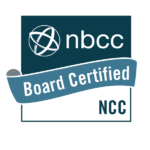Life can be very fragile. What we experience in life from the time we are a child to adults help to shape us. The good, the bad, and the ugly. Our emotions are influential as well. Everything from sadness to joy, confusion, and excitement. It is all part of the human experience.
It would be great if we never experience heartache or turmoil. Unfortunately, at some point, we all will. The things that life throws at us commonly can make us feel as if our lives have been flipped upside down. Going through a traumatic experience, especially, is something that makes us question it all.
What is traumatic to one person may not affect someone else emotionally in the same way. Furthermore, not everyone will think the same event is traumatic. In fact, any situation, that negatively impacts you, can be considered traumatic.
You have likely heard of PTSD, or Post-Traumatic Stress Disorder, which is a direct result from a traumatic event. But, have you heard of Complex PTSD? Both are direct results from trauma, but different types of trauma. To understand these differences, let’s review symptoms of PTSD, first.
Symptoms of PTSD
People who have gone through trauma can experience any number of the following symptoms.
- Flashbacks of the trauma – including memories and nightmares
- Avoidance – Avoiding any place, person, or situation that reminds them of the event. And, this also includes avoiding thinking about the trauma, period.
- Behavioral Changes- Such as loss of appetite, distancing from support systems, no longer participating in activities they once enjoyed
- Mood Changes – Experiencing overwhelming negative feelings, more easily irritable
What Causes “Non-Complex” PTSD?
The major difference between PTSD and C-PTSD is what causes them. When someone is experiencing PTSD symptoms, they are often as a result of:
- Car accidents
- Physical assault
- Sexual assault
- Serious health problems such as chronic illness or auto-immune diseases
- A tragic loss
- Death of a loved one or friend
- Witnessing a crime, violence, or abuse
- Bullying
- Death of a pet
- Non life-threatening injuries
- Anything that caused significant emotional distress on a person
The main characteristic of all of these is that they are singular, stand alone events. They are often one-time occurrences that made a person feel traumatized.
What Causes C-PTSD?
So, what exactly causes C-PTSD? Complex trauma is related to any traumatic event that was ongoing or repeated. Some examples of complex trauma’s include:
- Child abuse or neglect
- Repeated domestic violence
- Ongoing sexual abuse
- Witnessing abuse or crime multiple times
- War
- Anything negative that affected your mental health, multiple times
Anyone can experience C-PTSD, at any point of their life. However, it can be developed easier if the traumatic event:
- Occurred at any early age
- The traumatic event was ongoing for a long time
- Multiple traumas in life have occurred, even if they were all different
How To Find Relief
No matter what type of trauma occurred, it can be difficult to overcome it. To find some type of relief through event(s) that completely flipped everything for you.
If you are struggling to cope with PTSD symptoms, know that you aren’t alone. It may seem hard to imagine, but there are ways to heal from trauma. Here are a few.
Practice Mindfulness
You can help relieve PTSD symptoms by participating in calming movements such as yoga. It helps you focus on the movement and have a very calming affect on body and mind.
Connect With Others
You don’t have to talk about the traumatic event, if you don’t want to. But, you shouldn’t underestimate the power of just connecting with other people. Of going out to lunch and sharing in laughs and memories. It can help you temporarily distract your mind from focusing on the event but in a healthy, proactive way.
Seek Help
There is nothing wrong with needing extra support when you have gone through a traumatic event. It may be uncomfortable to talk about what you went through, but it can help you in the long-run heal from trauma.
If you are ready to begin healing and fully moving past your trauma, reach out to me to get started.



